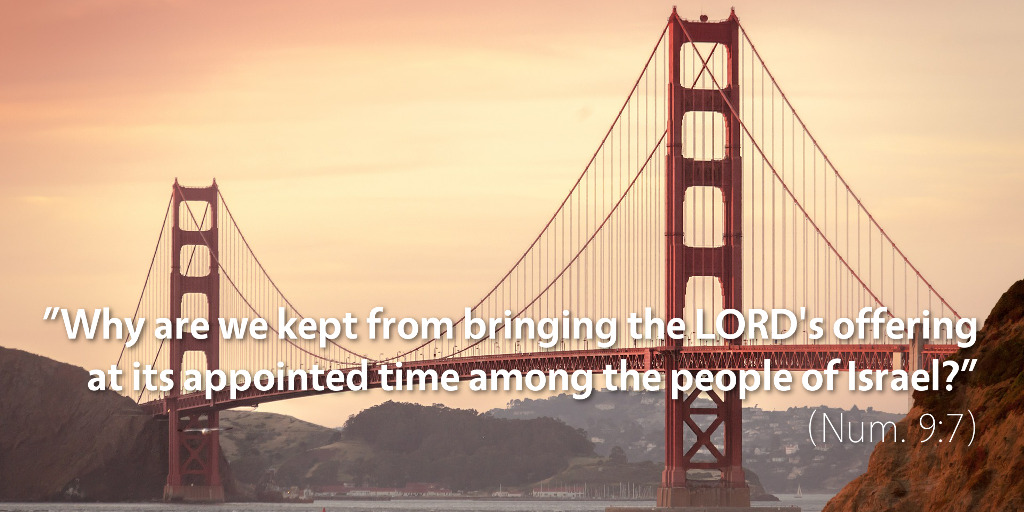Bible Readings for May 2nd
Numbers 9 | Psalm 45 | Song of Songs 7 | Hebrews 7
The observance of the Passover in Numbers 9 illustrates a principle we have seen throughout our study of Numbers. Yahweh is careful to protect his own holiness, so that he does not allow anyone who has become unclean through touching a dead body to participate in the Passover feast. He explicitly commands that the Israelites should keep the Passover “according to all its statutes and all its rules you shall keep it” (Num. 9:3).
And as it happened, a few people had touched a dead body, so they were unable to keep the Passover at that time. Admirably, they wanted to keep the Passover so much that they approached Moses and asked him if there was anything they could do to keep the Passover, despite their unclean status.
Here’s the principle we have seen again and again in Numbers: on the one hand, Yahweh protects his own holiness. But on the other hand, Yahweh relentlessly pushes against those boundaries, always seeking to find new ways to enjoy fellowship and communion with his people. So in this case, Yahweh establishes an alternate time for people who had been unclean or on a long journey to keep the Passover. Despite all his explicit calendar rules, Yahweh is nevertheless willing to make a provision to allow more people to remember and celebrate how he had brought them out of Egypt.
Through all of this, we see Yahweh’s love for his people straining in his holiness. He is never willing to compromise his holiness, but at every turn he seeks out ways to bridge the gap between himself and his people.
We saw it in the way Yahweh placed his tabernacle directly in the midst of his people but yet set up the Levites to guard against any unauthorized entry into it. We saw it in the way Yahweh appointed specific priests who would mediate between himself and the people, bringing sacrifices to purify his people of their sins. We saw it in the privilege of bringing the Levites near but strictly warning them not to look on the holy things in the tabernacle, lest they die. We saw it in the way Yahweh insisted that any who were unclean should dwell outside the camp but how he established an allowance for anyone—young or old, male or female, from any tribe—to be made holy through the Nazirite vow.
Ultimately, the gap between Yahweh’s holiness and his love must be bridged, without compromising either side. If Yahweh merely overlooks sin, his righteousness is forever defiled. But if Yahweh refuses to seek the salvation of his people, helpless sinners like you and me have no hope in this world or the next.
This dilemma will require nothing less than for the Holy One of Israel to became sin for us, bearing the curse of our sin and giving us his righteousness.
Podcast: Play in new window | Download (4.8MB) | Embed
Subscribe: Apple Podcasts | RSS | More

Scripture quotations are from The Holy Bible, English Standard Version copyright © 2001 by Crossway Bibles, a division of Good News Publishers. Used by permission. All rights reserved.


